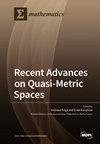Incorporating Digital Footprints into Credit-Scoring Models through Model Averaging
IF 2.3
3区 数学
Q1 MATHEMATICS
引用次数: 0
Abstract
Digital footprints provide crucial insights into individuals’ behaviors and preferences. Their role in credit scoring is becoming increasingly significant. Therefore, it is crucial to combine digital footprint data with traditional data for personal credit scoring. This paper proposes a novel credit-scoring model. First, lasso-logistic regression is used to select key variables that significantly impact the prediction results. Then, digital footprint variables are categorized based on business understanding, and candidate models are constructed from various combinations of these groups. Finally, the optimal weight is selected by minimizing the Kullback–Leibler loss. Subsequently, the final prediction model is constructed. Empirical analysis validates the advantages and feasibility of the proposed method in variable selection, coefficient estimation, and predictive accuracy. Furthermore, the model-averaging method provides the weights for each candidate model, providing managerial implications to identify beneficial variable combinations for credit scoring.通过模型平均法将数字足迹纳入信用评分模型
数字足迹为了解个人行为和偏好提供了重要依据。它们在信用评分中的作用正变得越来越重要。因此,将数字足迹数据与传统数据相结合进行个人信用评分至关重要。本文提出了一种新颖的信用评分模型。首先,采用套索-逻辑回归法选出对预测结果有重大影响的关键变量。然后,根据对业务的理解对数字足迹变量进行分类,并根据这些分组的不同组合构建候选模型。最后,通过最小化 Kullback-Leibler 损失来选择最佳权重。随后,构建最终预测模型。实证分析验证了所提方法在变量选择、系数估计和预测准确性方面的优势和可行性。此外,模型平均法还提供了每个候选模型的权重,为识别信用评分的有利变量组合提供了管理意义。
本文章由计算机程序翻译,如有差异,请以英文原文为准。
求助全文
约1分钟内获得全文
求助全文
来源期刊

Mathematics
Mathematics-General Mathematics
CiteScore
4.00
自引率
16.70%
发文量
4032
审稿时长
21.9 days
期刊介绍:
Mathematics (ISSN 2227-7390) is an international, open access journal which provides an advanced forum for studies related to mathematical sciences. It devotes exclusively to the publication of high-quality reviews, regular research papers and short communications in all areas of pure and applied mathematics. Mathematics also publishes timely and thorough survey articles on current trends, new theoretical techniques, novel ideas and new mathematical tools in different branches of mathematics.
 求助内容:
求助内容: 应助结果提醒方式:
应助结果提醒方式:


